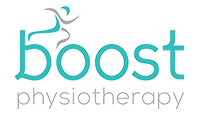
Relieving Jaw Pain: How Physiotherapy Can Help with Temporomandibular Dysfunction
What is Temporomandibular Dysfunction (TMD)?
So, what’s this temporomandibular dysfunction thing? Well, it’s a fancy term for problems with your jaw joint and the muscles around it. You know that cool joint right in front of your ears that lets you open and close your mouth? That’s called the temporomandibular joint (TMJ). When something goes wrong with this joint, it can cause a lot of discomfort and pain.
If you have TMD, you might notice some of these signs and symptoms. Here are a few things to watch out for:
-
- Jaw pain or tenderness: It can hurt when you try to open your mouth wide or chew.
- Clicking or popping sounds: You might hear strange noises coming from your jaw when you move it.
- Difficulty in opening or closing your mouth: Your jaw might feel stiff, making it hard to eat or speak.
- Headaches or earaches: TMD can sometimes cause headaches or pain in your ears.
How Can Physiotherapy Help?
Physiotherapy is a way to treat TMD and relieve the pain. It involves working with a trained therapist who knows all about muscles and joints. They can help you in many different ways:
Gentle exercises: The therapist will teach you specific exercises to strengthen and stretch the muscles around your jaw. These exercises can improve the flexibility of your jaw joint and reduce pain.
Manual therapy: Sometimes, the therapist might use their hands to massage the muscles around your jaw. It can help relax those muscles and ease the tension.
Posture and relaxation techniques: Did you know that how you hold your body and how you relax can affect your jaw? The therapist can teach you ways to improve your posture and relax your jaw to reduce pain.
Education and self-care: The therapist will educate you about TMD and give you tips for taking care of your jaw at home. They might suggest things like applying heat or cold packs to your jaw or avoiding hard and chewy foods.
Conclusion: Having jaw pain can be tough, but remember that you’re not alone, and there’s help available. Physiotherapy can be a fantastic option to manage temporomandibular dysfunction. With gentle exercises, manual therapy, posture correction, and self-care techniques, a physiotherapist can work with you to relieve your pain and improve your jaw function.
So, if you or someone you know is struggling with jaw pain, don’t hesitate to reach out to a physiotherapist. They can be your partner in the journey towards a pain-free and happy jaw!
Keep smiling, everyone!
At Boost Physiotherapy, our physiotherapists are ready to assist you with any injury you may have! If you are experiencing TMJ pain, talk to one of our physiotherapists and they will work with you to determine which treatment option best suits your needs. If you have any further questions about jaw pain, book an appointment online or call us today at 587-635-5555 (South Edmonton) or 780-591-5555 (Stony Plain). Our physiotherapists will be happy to assist you in any way!
BY: gcowan
Uncategorized
COMMENTS: No Comments
